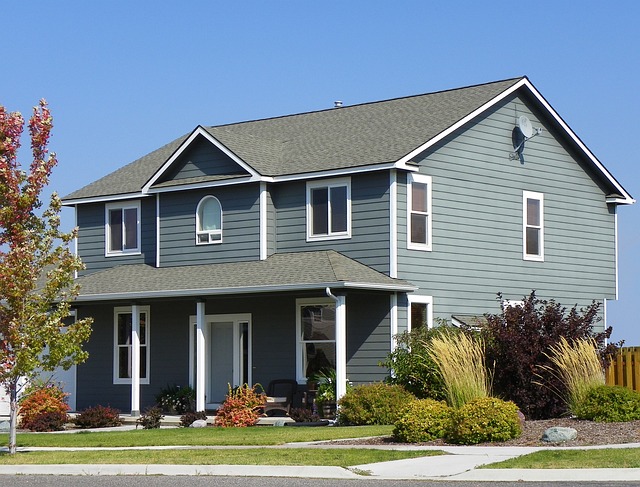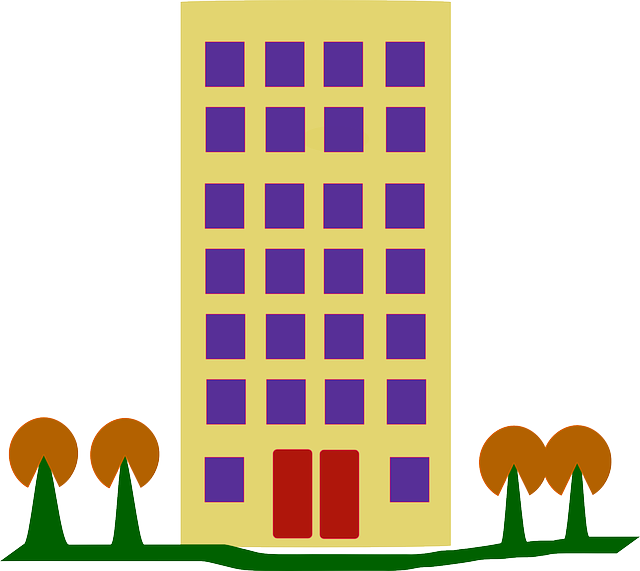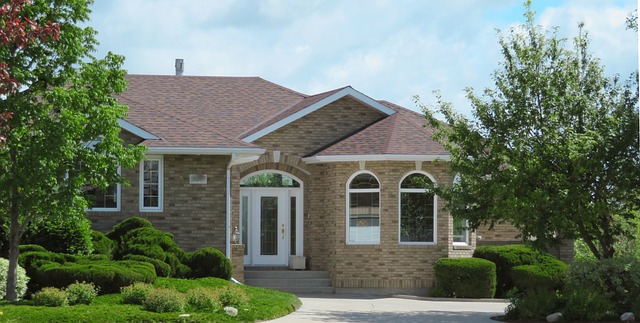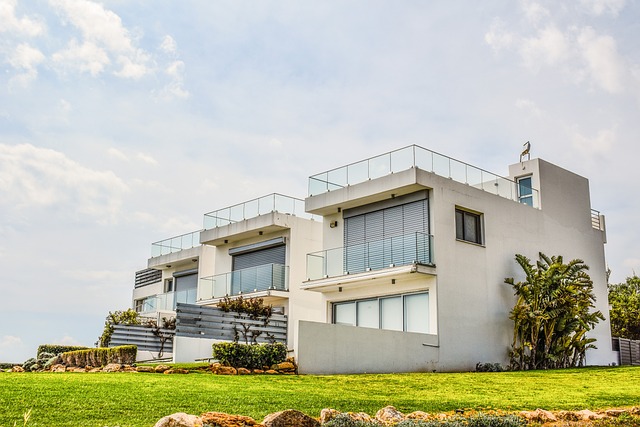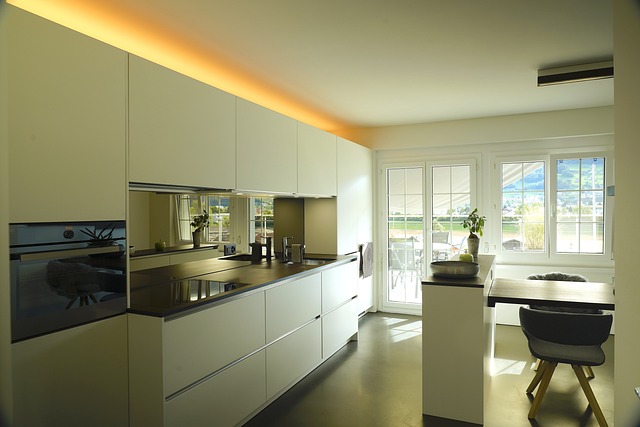“Thinking of buying your first executive condo? Navigating the handover process is crucial for ensuring a seamless transition into your new home. This comprehensive guide walks you through understanding the executive condo handover, from initial preparations t…….
Category: Executive Condo
🏢 Executive Condominiums: A Comprehensive Analysis
Introduction
In the realm of real estate, the concept of an ‘executive condominium’ (EC) has emerged as a significant segment, particularly in regions like Singapore. These residential units are designed to cater to the middle-income group of professionals and executives who aspire for a comfortable living space without the exorbitant price tags associated with private property. This article delves into the intricacies of executive condominiums, exploring their relevance, historical context, global impact, economic significance, technological advancements, policy frameworks, challenges, case studies, and future prospects. Readers will gain a comprehensive understanding of this unique real estate phenomenon and its multifaceted role in various economies.
Understanding Executive Condominiums
An executive condominium is a hybrid form of public and private housing that offers a combination of affordability and quality living. Typically, ECs are available for purchase by Singaporeans who meet specific income criteria and are able to ballot for one upon its release. These units provide the benefits of condominium living, such as shared facilities and security, while being sold at subsidized prices compared to private condos. Historically, ECs have played a pivotal role in addressing the housing needs of the middle-income group, ensuring that this segment has access to quality housing options.
Global Impact and Trends
The concept of executive condominiums is not exclusive to Singapore. Across the globe, urban development plans are increasingly incorporating similar housing models to cater to the burgeoning middle class. In cities like London, New York, and Sydney, the demand for affordable yet quality living spaces has led to the emergence of EC-like developments. These trends reflect a global shift towards more inclusive urban planning that addresses affordability while maintaining high standards of living.
Economic Considerations
Executive condominiums contribute significantly to the economic landscape by stimulating demand in the real estate sector, fostering job creation in construction and related industries, and providing a stable investment opportunity for homeowners. The market dynamics surrounding ECs are influenced by factors such as interest rates, mortgage policies, and the broader economic conditions. Investment patterns in ECs also play a crucial role in shaping the property market’s stability and resilience.
Technological Advancements
The integration of technology into executive condominiums has revolutionized living experiences. Smart home features, energy-efficient systems, and high-speed internet connectivity are becoming standard. These advancements not only enhance the quality of life for residents but also position ECs as forward-thinking entities within the real estate market. The future potential of technology in ECs is vast, with innovations like artificial intelligence, IoT devices, and sustainable energy solutions poised to redefine living standards.
Policy and Regulation
The governance of executive condominiums is guided by a comprehensive set of policies and regulations that dictate eligibility criteria, pricing, resale rules, and the transition from public to private housing status after a certain period. These frameworks are crucial in maintaining the balance between affordability and quality, ensuring that ECs serve their intended purpose effectively.
Challenges and Criticisms
Executive condominiums face challenges such as overdependence on government subsidies, concerns over the long-term viability of pricing structures, and the risk of market saturation. Critics argue that without robust policies, ECs could contribute to income inequality or become unaffordable over time. Strategies to overcome these issues include diversifying funding sources, implementing dynamic pricing models, and ensuring a sustainable supply that aligns with demand patterns.
Case Studies
Several executive condominium developments serve as benchmarks for success in the real estate sector. Case studies from Singapore’s Rivervales Residences or Parc Canberra illustrate how well-planned ECs can meet the needs of their residents while providing a model for sustainable living. These projects have set a precedent for future developments and offer valuable insights into the factors contributing to their success.
Future Prospects
Looking ahead, executive condominiums are poised for growth, driven by evolving economic landscapes, demographic shifts, and technological advancements. Potential growth areas include smart city integration, sustainable living initiatives, and adaptable housing solutions that cater to the changing needs of residents. Emerging trends suggest a focus on community-centric living spaces that blend affordability with modern amenities.
Conclusion
Executive condominiums represent a significant and evolving aspect of urban living. Their role in addressing the housing needs of middle-income earners is crucial, and their impact extends across economic, social, and technological domains. As we have explored throughout this article, ECs are more than just residential units; they are a testament to innovative housing solutions that can adapt to changing times while providing a stable foundation for individuals and families to thrive.
FAQ Section
-
What is an executive condominium (EC)?
An executive condominium is a hybrid form of public and private housing in Singapore, designed for the middle-income group. It offers a combination of affordability and quality living. -
Who can apply for an EC?
Typically, Singaporean families or individuals who meet the income criteria and are able to ballot for one are eligible to apply for an EC. -
How does the transition from an EC to a private condo work?
After five years, ECs can be sold back to the Housing & Development Board (HDB) at the prevailing market price. After ten years, the property automatically becomes a private condo without any restrictions on resale. -
Are ECs only available in Singapore?
While ECs were initially exclusive to Singapore, similar housing models are emerging in cities around the world as a response to the needs of the middle class for quality yet affordable living spaces. -
How do technological advancements impact ECs?
Technological advancements enhance the living experience by providing smart home features, energy efficiency, and connectivity, making ECs more attractive and future-proof. -
What are some of the challenges faced by ECs?
Challenges include potential market saturation, the risk of becoming unaffordable, and concerns over long-term viability and sustainability. -
Can I invest in an EC?
Yes, ECs can be a good investment opportunity for those interested in the property market, as they offer a balance between affordability and potential capital appreciation. However, investors should consider factors such as eligibility criteria, resale rules, and market trends before committing.
By addressing these frequently asked questions, prospective homeowners and investors can gain a clearer understanding of what executive condominiums are and how they fit into the broader context of urban living and real estate investment.
Trending Designs Transforming Executive Condo Construction
The executive condo market is experiencing a surge in popularity, with modern designs and luxurious amenities attracting high-end homebuyers. In this article, we explore the latest trends shaping the executive condo landscape, from sustainable features to opul…….
Guiding You Through the Executive Condo Application Process
An Executive Condo (EC) is a luxury housing option for high-income earners, offering affordable prices through government policies. Securing one involves a competitive process with strict financial requirements, including down payments. To apply, research and…….
Unveiling Singapore’s Executive Condominiums: Unique Housing, Ultimate Lifestyle
???????????????????????????????Singapore’s vibrant property scene offers a unique housing option: Executive Condominiums (ECs). These high-end apartments cater to professionals seeking luxurious living. In this comprehensive guide, we unravel the concept of EC…….
Unlocking Luxury Living: Navigating the World of Executive Condos
Executive Condos (ECs) offer a premium housing experience, merging condominium convenience with detached home privacy for professionals and families seeking high-end living in strategic locations. These luxurious residences feature spacious layouts, private ou…….
Maximizing Comfort: Executive Condo Amenities and Their Impact on Lifestyle
Executive Condos (ECs) offer a unique living experience with exceptional amenities tailored to modern lifestyles, including state-of-the-art gyms, pools, community spaces, and green gardens. These condos prioritize convenience, luxury, and community building,…….
Executive Condo Handover: A Comprehensive Buyer’s Journey
Buying an Executive Condo (EC) involves a critical handover process. New owners should conduct pre-handover inspections, review key documents like the Certificate of Entitlement, and ensure all agreed-upon renovations are complete. Sellers play a vital role in…….
Discover Top Upcoming Executive Condo Projects: Location, Design & Investment Guide
Executive Condos are high-end real estate offerings with premium features and strategic locations, catering to professionals seeking luxurious urban living. These condos boast superior construction quality, exclusive amenities, and smart home technology, situa…….
Optimizing EC Living: A Comprehensive Analysis of Executive Condo Floor Plans and Layouts
executive condominiums, or ECs, are a unique housing option in Singapore that caters to the needs of couples and families who do not immediately qualify for a public flat due to income restrictions. These hybrid homes blend the benefits of both private and pu…….
Elevating Standards: Sustainable Innovations & Design Trends in Executive Condos
2023 has seen a significant evolution in Singapore's Executive Condos (ECs), with a strong emphasis on sustainability and smart technology integration. This year, ECs have been upgraded with eco-friendly materials and energy-efficient technologies, enhanc…….

